S andra M. Moore is managing director and chief impact officer at Advantage Capital. The firm focuses on high growth and high wage business investing in communities where access to investment capital has historically been hard to find.
andra M. Moore is managing director and chief impact officer at Advantage Capital. The firm focuses on high growth and high wage business investing in communities where access to investment capital has historically been hard to find.
Businesses in the United States owned by Black and Brown entrepreneurs typically begin with just one-third the capital of the typical White entrepreneur-owned startup, and as a result, receive far fewer investment dollars because they lack collateral. How can entrepreneurs of color gain greater access to capital and resources to grow and build their businesses, and ultimately have a greater impact on the local communities where they live. *What are the measurable outputs and outcomes of impact investing in businesses located in distressed areas, and how are we pushing the envelope of what’s possible to set the industry standard? *What is the power and potential of public-private partnerships that can help fund minority owned businesses that often lack equitable access to capital; how are we advancing the legislative landscape for local economic development?
The fact that minority-owned businesses traditionally face highly uneven access to investment capital, therefore start out with a significant disadvantage in many cases. *Through leveraging government incentives, there are alternative investment dollar alternatives for small businesses that lack collateral or are deemed higher risk because they are located in distressed or rural areas. *Impact investing in distressed and rural communities can have profound effects on people’s lives, including the creation of higher paying jobs, more wealth opportunities and benefits for workers, and career training.
CLICK for Podcast



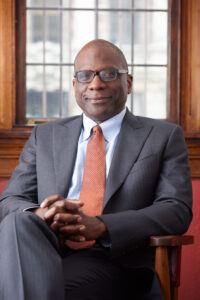 Reverend Fred Davie is a Senior Advisor for Racial Equity at Interfaith America, where he executes programming with a primary focus on the intersection of race and religion. He is also a minister in the Presbytery of New York City, and recently served as the Executive Vice President at Union Theological Seminary.
Reverend Fred Davie is a Senior Advisor for Racial Equity at Interfaith America, where he executes programming with a primary focus on the intersection of race and religion. He is also a minister in the Presbytery of New York City, and recently served as the Executive Vice President at Union Theological Seminary.
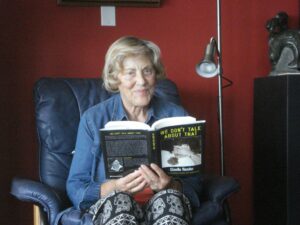 Born prior to WWII Giselle Roeder spent her early life in the relatively tranquil setting of a rural village in Pomerania, the most eastern part of Germany ceded to Poland in 1945. The bloody trauma of the fighting between the advancing Russians and the retreating German army in her neighborhood meant that thousands of people, including her family became displaced persons. l
Born prior to WWII Giselle Roeder spent her early life in the relatively tranquil setting of a rural village in Pomerania, the most eastern part of Germany ceded to Poland in 1945. The bloody trauma of the fighting between the advancing Russians and the retreating German army in her neighborhood meant that thousands of people, including her family became displaced persons. l See
See 



 Andrew documents the history of the Rosenwald schools program which transformed education for African Americans in the first half of the twentieth century. The founders were Julius Rosenwald, born to Jewish immigrants, who rose to lead Sears, Roebuck & Company and Booker T. Washington , born into slavery, who became the founding principal of Tuskegee Institute. In 1912 the two men launched an ambitious program to partner with Black communities to build public schools for African American children. Andrew examines the role of education as the onramp to the American middle class as well as the past, present and future of the Black/Jewish progressive alliance.
Andrew documents the history of the Rosenwald schools program which transformed education for African Americans in the first half of the twentieth century. The founders were Julius Rosenwald, born to Jewish immigrants, who rose to lead Sears, Roebuck & Company and Booker T. Washington , born into slavery, who became the founding principal of Tuskegee Institute. In 1912 the two men launched an ambitious program to partner with Black communities to build public schools for African American children. Andrew examines the role of education as the onramp to the American middle class as well as the past, present and future of the Black/Jewish progressive alliance.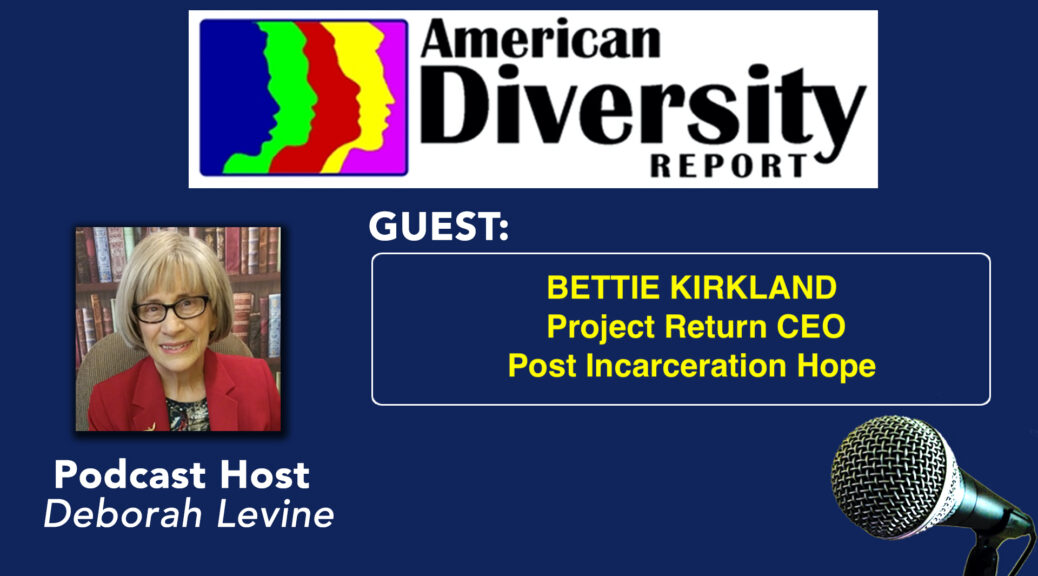
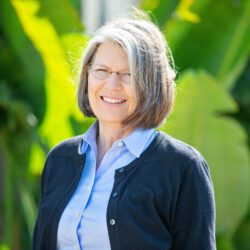 CEO Bettie Kirkland, has led Project Return for 10 years. Founded in Nashville in 1979, Project Return is a Tennessee nonprofit dedicated to helping people successfully return to the community after incarceration and avoid recidivism. It has helped thousands of men and women find employment and establish stable lives, all while maintaining its inclusive, productive relationships with its program participants, employment partners and supporters. In 2021, Project Return program participants had an 82% job acquisition rate with only a 13% recidivism rate compared to state and national averages exceeding 50%.
CEO Bettie Kirkland, has led Project Return for 10 years. Founded in Nashville in 1979, Project Return is a Tennessee nonprofit dedicated to helping people successfully return to the community after incarceration and avoid recidivism. It has helped thousands of men and women find employment and establish stable lives, all while maintaining its inclusive, productive relationships with its program participants, employment partners and supporters. In 2021, Project Return program participants had an 82% job acquisition rate with only a 13% recidivism rate compared to state and national averages exceeding 50%.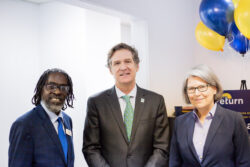 When Project Return, recently opened a new office in Chattanooga, the milestone was celebrated with a reception featuring these remarks its CEO.
When Project Return, recently opened a new office in Chattanooga, the milestone was celebrated with a reception featuring these remarks its CEO. Jed Mescon is a relationship builder, brand ambassador, dynamic speaker, creative thinker, persuasive communicator, veteran fundraiser, and community advocate. He is well known in Chattanooga having served as the host of the radio talk show Chewin the Chatt and as the morning news anchor for WRCB-TV.
Jed Mescon is a relationship builder, brand ambassador, dynamic speaker, creative thinker, persuasive communicator, veteran fundraiser, and community advocate. He is well known in Chattanooga having served as the host of the radio talk show Chewin the Chatt and as the morning news anchor for WRCB-TV.
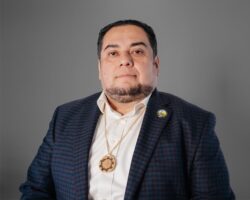 Rudy J. Ortega, Jr. is the Tribal President of the Fernandeño Tataviam Band of Mission Indians. Rudy steers the continuing efforts of the Tribe’s missions of protecting the rights of Fernandeño Tataviam as Native American people and plays a supportive role with the Tribe’s non-profit, Pukúu Cultural Community Services (Pukúu) to provide community programs to Native Americans living in the Los Angeles County.
Rudy J. Ortega, Jr. is the Tribal President of the Fernandeño Tataviam Band of Mission Indians. Rudy steers the continuing efforts of the Tribe’s missions of protecting the rights of Fernandeño Tataviam as Native American people and plays a supportive role with the Tribe’s non-profit, Pukúu Cultural Community Services (Pukúu) to provide community programs to Native Americans living in the Los Angeles County.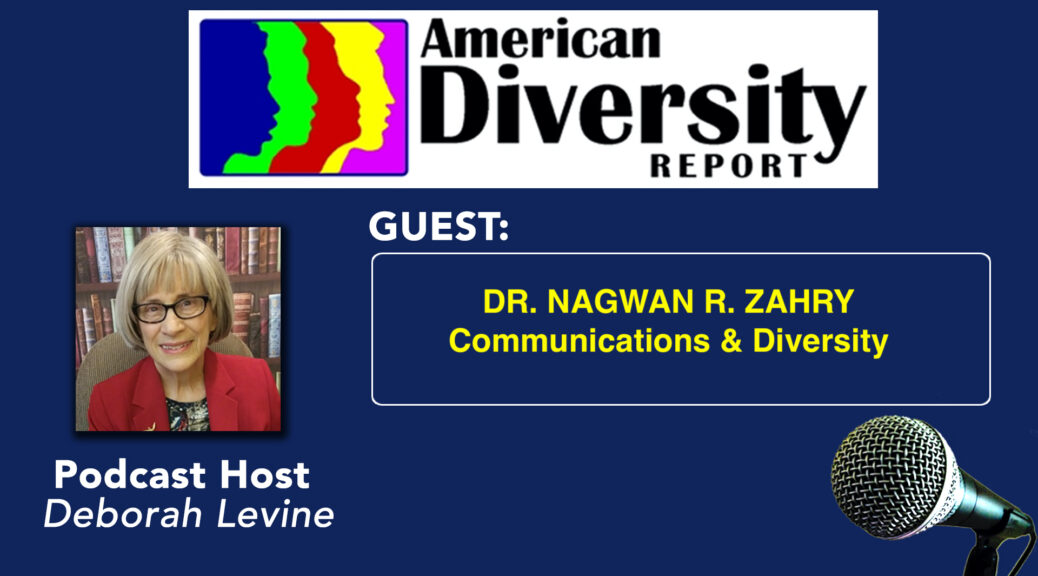
 Dr. Nagwan R. Zahry is assistant professor of communication at U. of Tennessee at Chattanooga (UTC). Originally from Egypt where she was a Sr. Program Manager for U.S. Agency for International Development (USAID) and U.S. Midwest Universities Consortium, Nagwan got her PhD from Michigan State U. in media and information. After graduation, she became an assistant professor of communication and in 2018, she joined UTC where she teaches social media marketing, public relations, media and diversity. Her research focuses on science communication, health communication and persuasive messaging.
Dr. Nagwan R. Zahry is assistant professor of communication at U. of Tennessee at Chattanooga (UTC). Originally from Egypt where she was a Sr. Program Manager for U.S. Agency for International Development (USAID) and U.S. Midwest Universities Consortium, Nagwan got her PhD from Michigan State U. in media and information. After graduation, she became an assistant professor of communication and in 2018, she joined UTC where she teaches social media marketing, public relations, media and diversity. Her research focuses on science communication, health communication and persuasive messaging.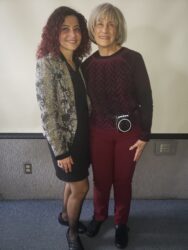

 Real American Families
Real American Families